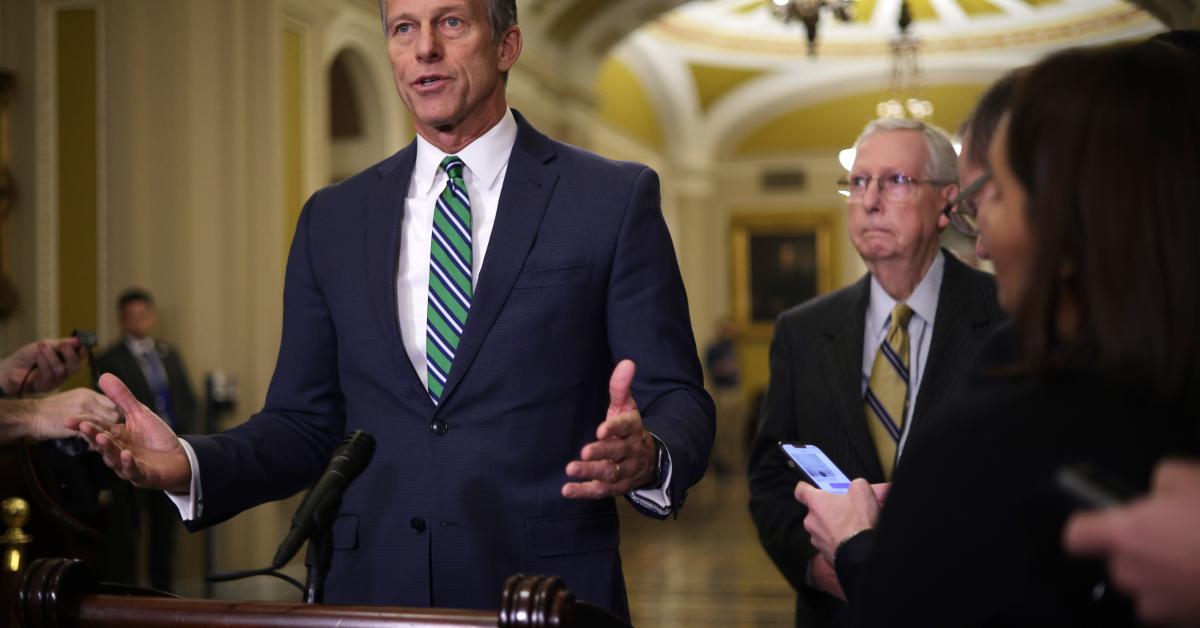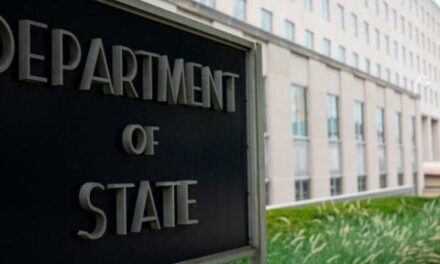We support our Publishers and Content Creators. You can view this story on their website by CLICKING HERE.

What does Kentucky Sen. Mitch McConnell, the architect of Republicans’ might in judicial appointments, have in common with Andrew Straw, a civil rights lawyer who founded the Disability Party to increase “access and opportunity” for people like him?
They are determined to stop proposed changes to federal court rules that could chill the “First Amendment right to petition courts on matters of public interest,” in Straw’s words.
A motley crew of federal lawmakers, advocacy groups and individuals filed comments in a little-watched Judicial Conference of the United States proceeding on proposed changes to federal rules of appellate procedure, which is open through mid-February.
One would change the rules around friend-of-the-court briefs in federal litigation by non-parties such as the ACLU, U.S. Chamber of Commerce and state attorneys general.
It was prompted by 2019 legislation that requires disclosure of anyone who “contributed to the preparation or submission of the amicus brief” or “made certain monetary contributions to the person,” creating a “registration and disclosure system” like that for lobbyists, according to the preliminary draft of the proposed amendments.
The advisory committee had already formed a subcommittee to study the idea when Sen. Sheldon Whitehouse, D-R.I, and Rep. Hank Johnson, D-Ga., asked the chair of the practice and procedure committee in 2021 to form one, the draft says.
Whitehouse and Johnson filed a joint comment strongly supporting the proposal and urging even more stringent disclosure, explaining in a press release that “powerful special interest groups seek to lobby the federal courts” through friend-of-the-court briefs but can currently hide the “true interests behind the briefing and any resulting conflicts” from the public.
The Democrats seek only to unmask the forces behind “‘faux litigation’ – the litigating group found the client, judge-shopped the court, and participated in an orchestrated campaign of judicial lobbying by an amicus flotilla” that adds “little beyond a false appearance of numerosity and a great many extra pages” to the court record.
Two other supportive comments were filed, ironically, by anonymous individuals. “Thank you for the opportunity to comment anonymously,” one said, comparing amicus briefs to “junk mail” that influences judges to “do something you’d otherwise not do, most often by emotional trickery and undergraduate-psychology-class marketing tactics.”
Senators McConnell, GOP Leader John Thune, of South Dakota, and John Cornyn, of Texas, blasted the proposed changes the Judicial Conference is “inexplicably considering … given their obviously partisan genesis,” in a colorful joint comment.
They said the changes are “based on complaints by partisan Democrats who operate under a bad-faith misunderstanding of the judicial process” and seek to “chill core protected speech and associations while bringing the judiciary into disrepute for partisan purposes.”
The Supreme Court has long imposed a high bar for compelled disclosure of one’s associations as formalized by a ruling against “Jim Crow Alabama” when it demanded the NAACP divulge its members, the senators wrote.
Friend-of-the-court briefs are nothing like direct advocacy for a candidate’s election, and the appellate docket is not prone to “Nixonian wet works” such as political action committees linked to Senate Democratic Leader Chuck Schumer manipulating GOP primaries, they said. The advisory committee “apparently understands neither campaigns nor judging.”
Even if the trade groups and think tanks that file briefs were the “corruptee,” the senators asked, “who cares? … Where’s the public interest in seeing if, hypothetically, the Sierra Club has been bought off by the green-energy industry,” and “why is it the job of the judicial bureaucracy to play-act as Woodward and Bernstein?”
They mocked the “flotilla” and “regulatory capture” theory of Whitehouse and Johnson, that “the Supreme Court doesn’t issue originalist rulings because it’s majority originalist” but because “‘right-wing special interests’ have ‘captured’ it. … You know it’s not how litigation works.”
The Judicial Conference advocates laws to shield judges’ personal information but these changes would unleash “harassment of disfavored speakers,” the comment says.
“Even liberals understand the danger proposed by disclosure,” as illustrated by SCOTUS transparency group Fix the Court accidentally sending its donor list to The Washington Examiner and its executive director admitting “if their names become public, they’re never going to talk to me again, and Fix the Court is over.”
“Senate Democrats have gone to great lengths to bully and harass members of the judiciary” as a “perceived impediment to their preferred policies,” the Republicans wrote, pointing to Schumer’s threats to justices by name that they will “pay the price” for ruling the wrong way.
“There’s a whole media cottage industry dedicated” to harassing GOP-nominated judges in high-profile cases, such as Texas federal judges Matthew Kacsmaryk and Cam Barker and 5th U.S Circuit Court of Appeals judges James Ho and Don Willett, the senators said.
“It costs virtually nothing to allow amicus briefs to be filed and they should always be allowed regardless of the consent of any party,” wrote civil rights lawyer Straw in the proceeding’s first comment. “As a civil rights advocate for people with disabilities, it is exceptionally important to allow these briefs in civil rights cases” but all should be allowed “without exception.”
The free-market Washington Legal Foundation questioned how the advisory committee arrived at its “arbitrary” monetary and chronological thresholds for disclosure – a party, counsel or “any combination” contributing or pledging 25% of the filer’s total revenue in the prior year, or an individual who pledged more than $100 “to pay for preparing, drafting, or submitting the brief.”
The National Taxpayers Union Foundation and People United for Privacy Foundation filed the most recent comment Dec. 10, arguing the advisory committee had not met the First Amendment’s “exacting scrutiny” standard for disclosure.
NTUPF’s Taxpayer Defense Center, which advocates for taxpayers in the courts, likely could not “offer its insight in complex tax and fiscal cases dealing with subtle areas of constitutional law, tax law, and policy” under the proposed changes, the comment says.
When Congress passed a disclosure law for “candidate advertisements masquerading as issue ads” on the eve of elections, and McConnell sued the Federal Election Commission to stop its implementation, “the government needed to build a 100,000-page record” to make a bare showing that the law was “appropriately tailored to a real and concrete problem,” they said.
The advisory committee, by contrast, simply offered “one paragraph of speculation and conclusory assertion” that “some judges” want to know amici donor identities in “some cases,” and claimed that public confidence in the courts is improved when “members of the public can use the disclosures to monitor the courts,” the comment says.
Other institutional comments were filed by the Atlantic Legal Foundation and Securities Industry and Financial Markets Association.

 Conservative
Conservative  Search
Search Trending
Trending Current News
Current News 





